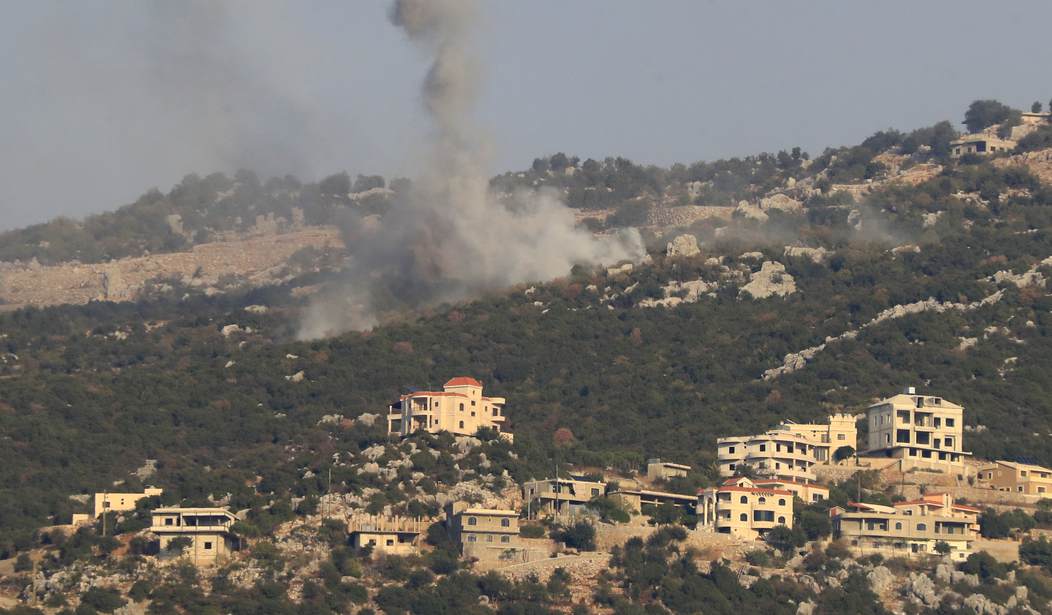The U.S. and Iran held what was termed "indirect talks" with Iran this past week in Oman.
The meeting of top-level Biden White House officials, Middle East adviser, Brett McGurk, and Abram Paley the acting U.S. envoy for Iran, using Omani mediators this past week comes after the first airstrike carried out by Hezbollah against Israel on April 13. Several drones were launched at an Israeli airbase wounding three soldiers on Friday after Hezbollah targeted Israel's Meron air control base and Pranit barracks in the Galilee with dozens of drones and ballistic missiles on May 15.
With escalating violence coming from Hezbollah, the Biden administration thought it prudent that U.S. officials sit down indirectly with Iran and try to get them to rein in their proxies and halt their direct attacks on Israel.
It's unclear who represented Iran at the talks.
The sources said the talks focused on clarifying the consequences of actions by Iran and its proxies in the region and to discuss U.S. concerns regarding the status of Iran's nuclear program.
Several Iranian officials hinted in recent weeks about the possibility of Iran moving toward production of nuclear weapons.
What they're saying: Vedant Patel, the State Department's deputy spokesperson, said Monday the Biden administration has ways to communicate with Iran when necessary.
"The Biden administration continues to assess that Iran is not currently undertaking the key activities that would be necessary to produce a testable nuclear device," he said.
Biden's advisors are still insisting that Iran has not "resumed" its nuclear weapons program that they supposedly halted at the end of 2023. This is magical thinking. Every move Iran has made in the past two decades to upgrade and improve its nuclear infrastructure — centrifuges, reactors, ballistic missiles — has been to set the table for the introduction of an Iranian nuclear weapon.
Iran does not fear U.S. attacks as long as Biden is president. There is no "red line" they can cross that would result in serious attacks against their nuclear infrastructure by America. Iran fears Israel and for good reason. There is no government past, present, or future in Israel that would allow Iran to possess a nuclear weapon.
At the moment, Biden is trying to prevent an outbreak of a general Middle East war that many analysts believe could quickly spiral into a general world conflict. But recent attacks by Hezbollah on Israel point to the inevitability of a major Israeli strike against Iranian targets.
This was made manifest after an Israeli strike on Hezbollah targets in Lebanon that shocked the Israelis with the discovery of highly sophisticated Iranian anti-aircraft missiles.
An Israeli airstrike earlier today in southern Lebanon seems to reveal that Hezbollah is in possession of advanced Iranian anti-aircraft missiles.
The IDF said earlier that it had targeted Hezbollah compounds in Najjarieh, south of Sidon, used by the terror group’s air defense unit.
The sites had “posed a threat to Israeli aircraft,” the military said.
Footage circulating on social media apparently shows the remains of an Iranian Sayyad-2 surface-to-air missile following one of the IDF strikes.
Earlier today the IDF announced the targeting of an Hezbollah Air Defense Unit - footage circulating social media appears to show the remains of an Iranian Sayyad-2 surface to air, air defense missile. pic.twitter.com/j92UAojscL
— Aurora Intel (@AuroraIntel) May 17, 2024
Iran has never supplied Hezbollah with such sophisticated anti-aircraft weapons before.
If Biden and his advisors were willing to open their eyes and see the Iranian threat instead of trying to buy their goodwill be allowing them to recoup frozen assets, a meeting might do some good. But Biden has groveled too much before the Iranians for them to show him anything but contempt.










